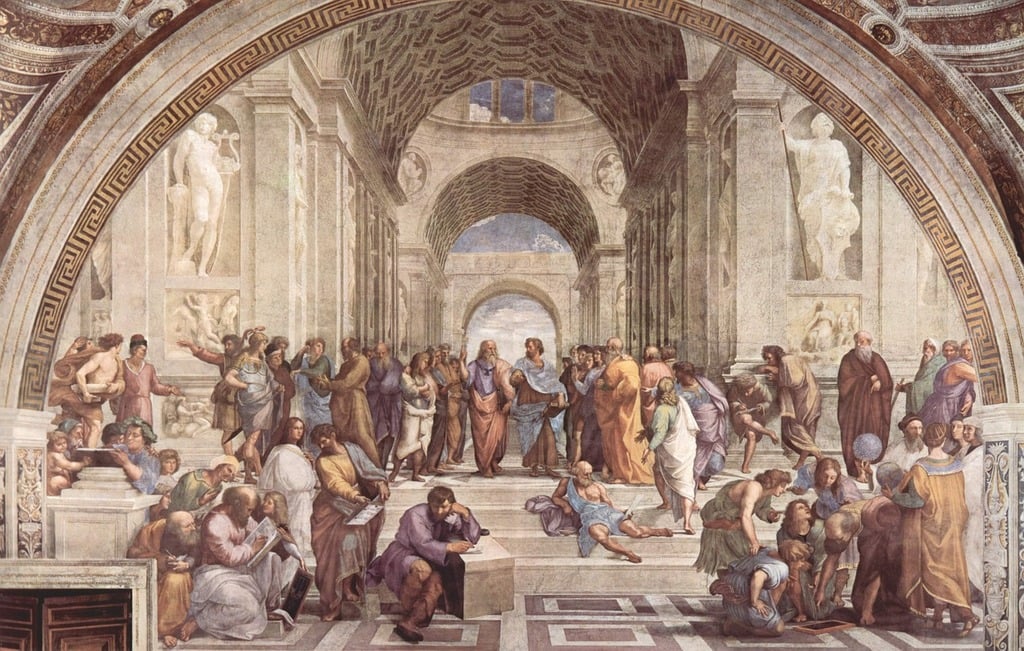The media has published many think-pieces on the nature of Generation Z, ruminating on everything from their social media usage to their mental health. But what are their opinions on voting? A sizable portion of Generation Z, aged 11-27, has just reached or is about to reach voting age. Their opinions on the matter will almost certainly affect the upcoming 2024 Presidential election.
Controversy has always surrounded the voting age, remaining up to the states until the ratification of the 26th Amendment in 1971. Before this ratification, the voting age across most states was 21, the same as the drinking age. After ratification, the federal government lowered the voting age to 18, aligning it with the age for military service signup.
Most CHS students surveyed approve of the current voting age of 18, and over 76% gave a rating of six or higher on a 10-point scale.
“I feel the current voting age is good. Of course, there are going to be some 18 to 20-year-olds who misuse their vote to be immature, but I think a lot of teens have valuable opinions and deserve to be able to voice them,” senior Aylah Hopper said.
However, few 18-year-olds are voicing their opinions. 18-year-olds have had the lowest voter turnout and registration rates of any age group in America for over 20 years. In 2020, only 47.5 percent of 18-year-olds were registered to vote, as opposed to the national average of 72.5 percent.
Even though 18-year-olds’ voter registration rates have increased since 2012, the youngest voters consistently lag behind their older peers in registration and turnout. From 2000 to 2020, 18-year-olds’ voter registration rates have lagged behind even 19-year-olds’ rates, with the discrepancy ranging from as low as 2.8 percent in 2008 to as high as 9.4 percent in 2016.
One cause for these low rates of registration could be lack of education about voting and its related processes in high schools.
“When I say [voter registration] isn’t talked about enough, I mean talked about in a learning way. I feel like those turning 18 should be taught how to register, and then that individual does what they please with that information,” senior Zoe Daniels-Sankey said.
Research suggests that voter registration may not be a widely understood topic among young people. High school curriculums, including United States Government classes, often do not cover this subject. In addition, the transition to adulthood, characterized by increased academic responsibilities and college applications, can overshadow the importance of learning about voter registration for high school seniors.
“I don’t know how to register for voting. No idea how it works, [plus] I’m a very busy person, so it’s just something that’s adding to my very large to-do list,” senior Sam McDonough said.
The discrepancy in voter registration rates among teenagers could also be attributed to the political attitudes of Generation Z towards voting. According to a survey conducted on CHS students, 29 percent of student respondents rated the effectiveness of voting five or lower on a scale of one to 10.
“I think a lot of young people, even if they care, they just don’t wanna get out to vote because they don’t see the point,” senior Cecilia Dupor said. “Typically younger people are more progressive, and they don’t believe that politics will ever become progressive.”
Factors within the United States voting system, such as the electoral college, extended campaigning seasons and gerrymandering, could influence the voting rate. These elements may contribute to voter fatigue. The absence of a national holiday on Election Day could also lower turnout, due to the fact that those who cannot afford to take a day off from work may be unable to vote at all.
“Election Day should be a national holiday so that more people can vote. I feel like, since people are so disenfranchised, they’re not going to take the time out of their busy day to go vote unless there’s a day off,” Dupor said.
While voting is a key method for enacting change in the United States, it isn’t the only one. Social media, for instance, provides a platform for individuals, including those under 18, to express their opinions. Despite not being of voting age, this group comprises a significant part of the population.
“The more active you can be, the better. Post on social media, knock on doors, educate yourself so that when you are 18, you’re a more informed voter,” Dupor said.
Methods of participation in the political system beyond voting include protesting, signing petitions, contacting politicians and donating to political organizations. Additionally, staying informed about the political climate is a common practice among young Americans, as it helps them understand the news, engage in debates, and prepare for voting when they reach the legal age.
“It’s good to stay educated, and if you do that, then you can get what you actually want to pass because you’ll be able to talk about things and debate properly,” McDonough said.
Voting extends beyond individual choice and ties into the larger political system. Many young people have expressed opinions about the structure of America’s electoral system. Among these, the Electoral College has been a point of discussion, with some finding it complex or questioning its usefulness.
“I do think something about the system is corrupt. I have felt like that since Trump did not receive [a] majority vote, yet he still won because of the electoral college,” Hopper said.
The opinions held by young voters could potentially influence the 2024 election. Early speculations suggest the possibility of a contest between former President Donald Trump and current President Joe Biden. Noteworthy developments include legal proceedings involving Trump, and Biden’s anti-ceasefire stance on the violence in Palestine. According to a survey by Data For Progress, 66 percent of American voters support a ceasefire.
Among interviewees and survey respondents, words most often used to describe one’s emotions toward the upcoming election included “nervous,” “scared,” “not optimistic” and “confused.” Several self-identifying queer respondents expressed fear over the outcome of the election, considering the current reactionary backlash against transgender rights.
“I’m scared for the future as a queer American to see what happens to us next. This is a scary time,” freshman Connor Riley said.
Along with their views on the electoral system, some individuals expressed a lack of satisfaction with the available choices in elections. One respondent even compared the situation to choosing between ‘Hitler vs. Hitler.’
“It sucks that the only candidates are people who I’m not entirely happy voting for. Joe Biden is too moderate and old for me, but still, he’s far better than Trump or any other Republican. I wish Biden would’ve stepped down from running, but it is too late now,” said one respondent.
Regardless of young voters’ perspectives on the voting system and candidate choices, historical trends suggest that many newly eligible voters may not cast their ballots. The potential impact on future election outcomes is yet to be determined. In this context, experts often recommend that young people research, educate themselves, and stay informed about political matters.
“Stay educated about politics, even if you can’t participate or don’t want to,” McDonough said. “You should still know what’s going on. Being able to ignore whatever’s happening politically is a privilege that a lot of people in Clayton have, but a lot of people outside of Clayton don’t.”











